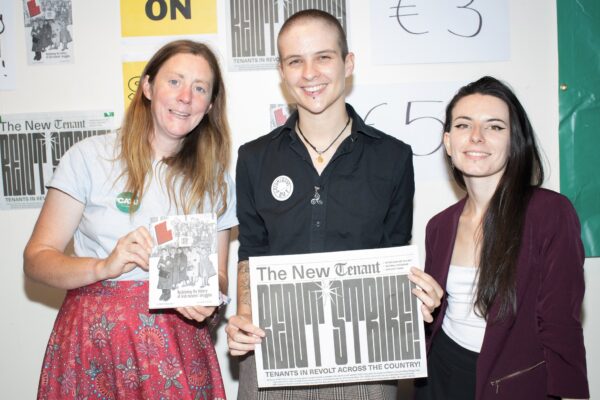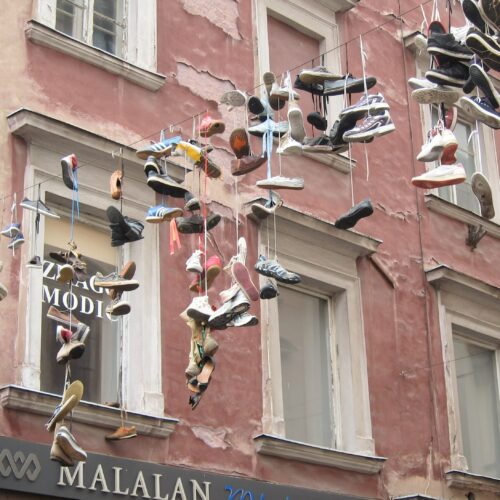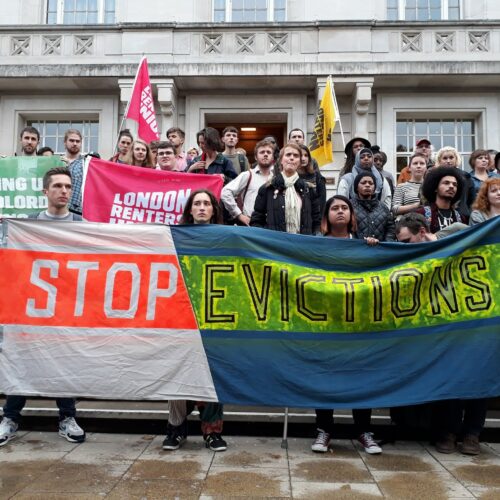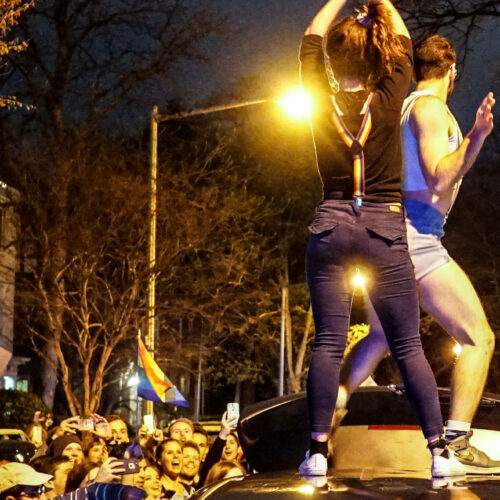CATU, the Community Action Tenants’ Union, is a grassroots organisation based across the island of Ireland. They are a membership owned, and primarily membership funded, organisation. The CATU crew fight alongside each other to win changes in everyday lives – in housing, the provision of community services, council maintenance and other areas.
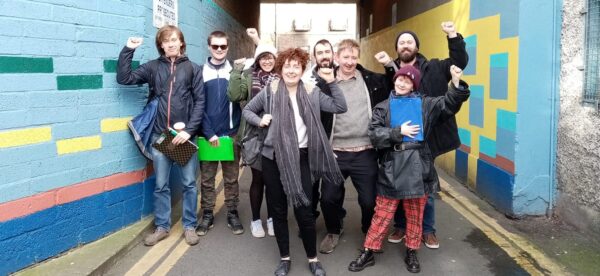
Many of their members are tenants in both the private rented and council sectors, but they also have members who are mortgage holders/homeowners. The only condition in which someone could not join CATU is if they are a landlord, or work in a field related to the business of carrying out evictions.
The members pay monthly dues, ranging from €5 a month up to €20 a month depending on capacity, with an overall average just over €8 per member. They operate a no-fee membership for asylum seeking people and those in the ‘Direct Provision’ system.

CATU membership has grown from a base of 30 at launch just before the pandemic, to approximately 1750 in Q4. 2022. This growth is a pretty big deal, as so much of it took place against the backdrop of restrictions on meeting and organising in-person. At the core of their work is a desire to be in communities, meeting with people, developing relationships of solidarity from street to street and 2022 has allowed them to refocus in this area. They are optimistic about building upon that work further looking to 2023. CATU has 20 formally established branches across the island’s 32 counties, and a further 15 local groups that are building towards formal launches in the months ahead. (The distinction between a group and a branch is that a branch must have a minimum of 40 members and be regularly active in its local area. They will then elect a local committee, and a national representative for the union’s overall National Committee).
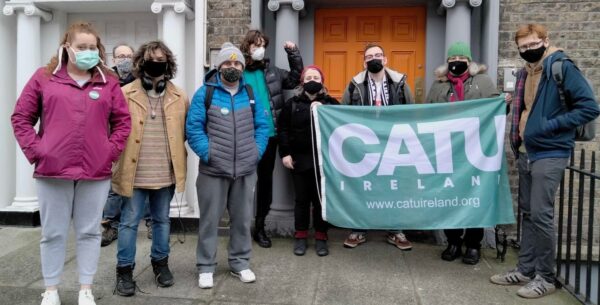
The union is building a database of information on landlords, which is probably their most important arsenal in the fight against landlord’s power in Ireland. The primary way in which they fight landlords is via protest and they need to know where to protest and how to apply pressure; for which they need to know how many business or other properties they own. CATU have a landlord research team who are all volunteers and are unfortunately overworked. It would be really wonderful to be able to offer payment to these people (this is definitely an area where grant money is needed). More importantly; they have members who are able to digitise all the collected information and build the database, and have presented a proposal on how to do so. However, the scale of this project, and the time needed, would require a salary.
CATU also collects historical research about NATO rent strike projects of the 70s in Ireland, creating a database of working class history. Similarly, this work is done by volunteers. This includes organising and holding interviews, translation and digitization. It would be wonderful to have the option to stabilise this work through payment. Being able to pay all these people would also allow them to hire a diverse range of people and keep their commitment to intersectionality and diversity within their workforce (Guerrilla funding will cover core costs but other funders interested in housing jusitce could reach out to CATU directly cos costs are neverending).
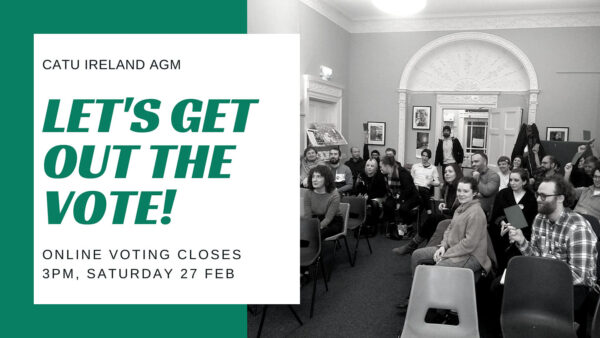
How CATU works
CATU is a direct action union, so their work is centered around actions. These can be responsive, such as dealing with eviction-prevention, or proactive, such as a march on the boss. They firmly believe that action only works when it’s hand-in-hand with community organising: with meeting regularly, creating space to plan and talk about what connects folx and what problems they all share, help each other with neighbourly issues like childcare, cooking, etc. CATU believe that building this community strength and solidarity (people power), alongside action, is really the only way to fight against economic and financial power and to therefore try and address systemic issues. To give a current example from their work; one area they’re working in is a working-class suburb of Dublin called Ballymun, where they are working with council (public housing) tenants. The systemic causes for these injustices are on full display here; the council tore down the previous public housing scheme in ’04 and built a regeneration project that is not made to last or fit to purpose, because they ideologically oppose public goods and seek to privatise.
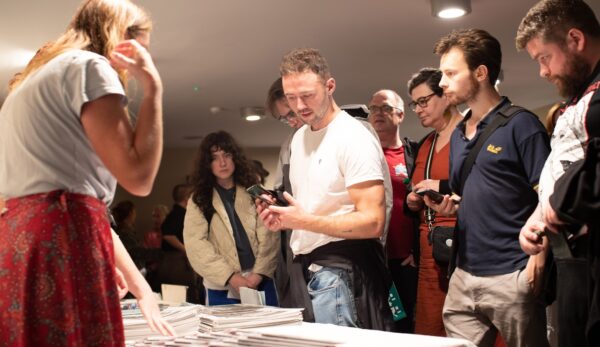
The maintenance on these buildings has almost completely fallen to the side, as the council stopped hiring maintenance workers in the past decade and now outsource all the maintenance, and under resource it, another indication of their commitment to neoliberal privatisation and the erosion of the state and public goods. CATU have been collecting complaints from residents for months, have collected over 200 and delivered them to the council in a march on the boss style action. At time of writing, on CATU activist is heading to Ballymun for the first 2023 weekly meeting to plan the year ahead. So far, they plan to bring the Ballymun members together with other public housing union members from around the country to stage marches on the council with their demands and complaints, and to hold them accountable to the promises they have made to the members. All of this is community building work in an attempt to highlight and fight the systemic issue of the erosion of public goods and the state to the behest of private landowners and business.
This erosion of public goods comes with an erosion of community, so community organising is CATU’s main focus for this year. This means that, instead of simply responding to the right wing demonstrations throughout the country with a counter-demo, they’ve made stalls and door knocking and coffee morning schedules for the various areas that are expecting migrants in the near future, so that CATU gets its name in the community and is creating community and collective consciousness and action prior to right wing protests.
